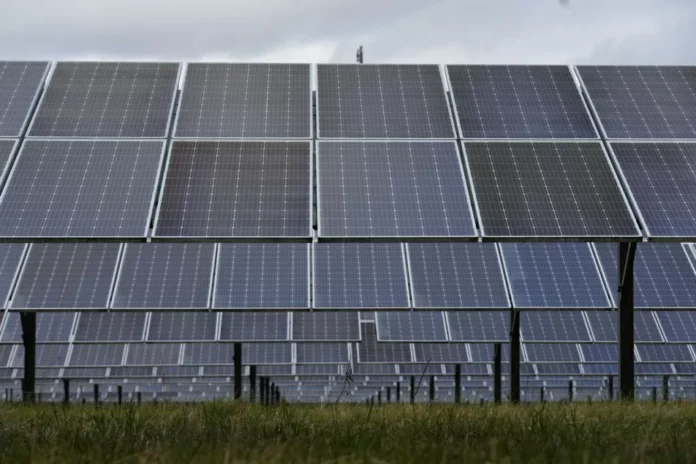The solar energy industry has been growing rapidly in recent years, with more and more countries investing in renewable energy sources. However, this week, the Commerce Department announced plans to hike tariffs on solar panels from East Asia, citing alleged Chinese subsidies. This decision has sparked controversy and raised concerns about the impact it may have on the industry.
The Commerce Department’s announcement stated that solar panels from Cambodia, Malaysia, Thailand, and Vietnam are receiving unfair subsidies from China, which is distorting the market and giving them an unfair advantage. As a result, the department has proposed an increase in tariffs on these panels, with Cambodia facing the highest rate of 652 percent on average.
This move has been met with mixed reactions, with some applauding the government’s efforts to protect the domestic solar industry, while others are concerned about the potential negative consequences. However, it is essential to understand the reasoning behind this decision and its potential impact on the solar industry.
The Commerce Department’s decision to increase tariffs on solar panels from East Asia is a step towards creating a level playing field for all countries involved in the solar industry. China’s subsidies have allowed these countries to produce and sell solar panels at a lower cost, giving them a competitive advantage over other countries. This has led to a surge in imports, which has had a significant impact on the domestic solar industry.
By imposing higher tariffs, the Commerce Department aims to address this issue and protect the interests of American solar panel manufacturers. This move will not only help to create a more fair and competitive market but also encourage domestic production, which will create more jobs and boost the economy.
Moreover, this decision is not only about protecting the domestic industry but also about ensuring the quality and safety of solar panels. With the rise in imports, there has been a growing concern about the quality and reliability of these panels. By increasing tariffs, the government is sending a strong message that it will not compromise on the quality of solar panels and will not allow substandard products to flood the market.
While this decision may seem like a setback for the solar industry, it is essential to note that it is a step towards sustainable growth and development. The solar industry has been heavily reliant on Chinese subsidies, which has made it difficult for other countries to compete. With the increase in tariffs, the industry will have to rely less on imports and focus on domestic production, which will lead to long-term growth and stability.
Moreover, this decision will also encourage innovation in the solar industry. With the need to reduce costs and become more competitive, manufacturers will have to find new and innovative ways to produce solar panels. This will not only benefit the industry but also contribute to the overall development of the renewable energy sector.
In addition to this, the Commerce Department’s decision will also have a positive impact on the environment. With the increase in tariffs, there will be a decrease in the number of solar panels being imported, which will reduce the carbon footprint of transportation. Furthermore, domestic production will also lead to a decrease in carbon emissions, making it a win-win situation for both the industry and the environment.
While there may be concerns about the impact this decision will have on the prices of solar panels, it is essential to note that this is a necessary step towards creating a sustainable and competitive industry. The initial increase in prices may be a burden, but in the long run, it will lead to a more stable and reliable market.
In conclusion, the Commerce Department’s decision to hike tariffs on solar panels from East Asia is a positive step towards creating a level playing field for all countries involved in the solar industry. It will not only protect the interests of American manufacturers but also encourage innovation, promote domestic production, and have a positive impact on the environment. This decision should be seen as a necessary step towards the growth and development of the solar industry, and we should all support it for a brighter and cleaner future.

